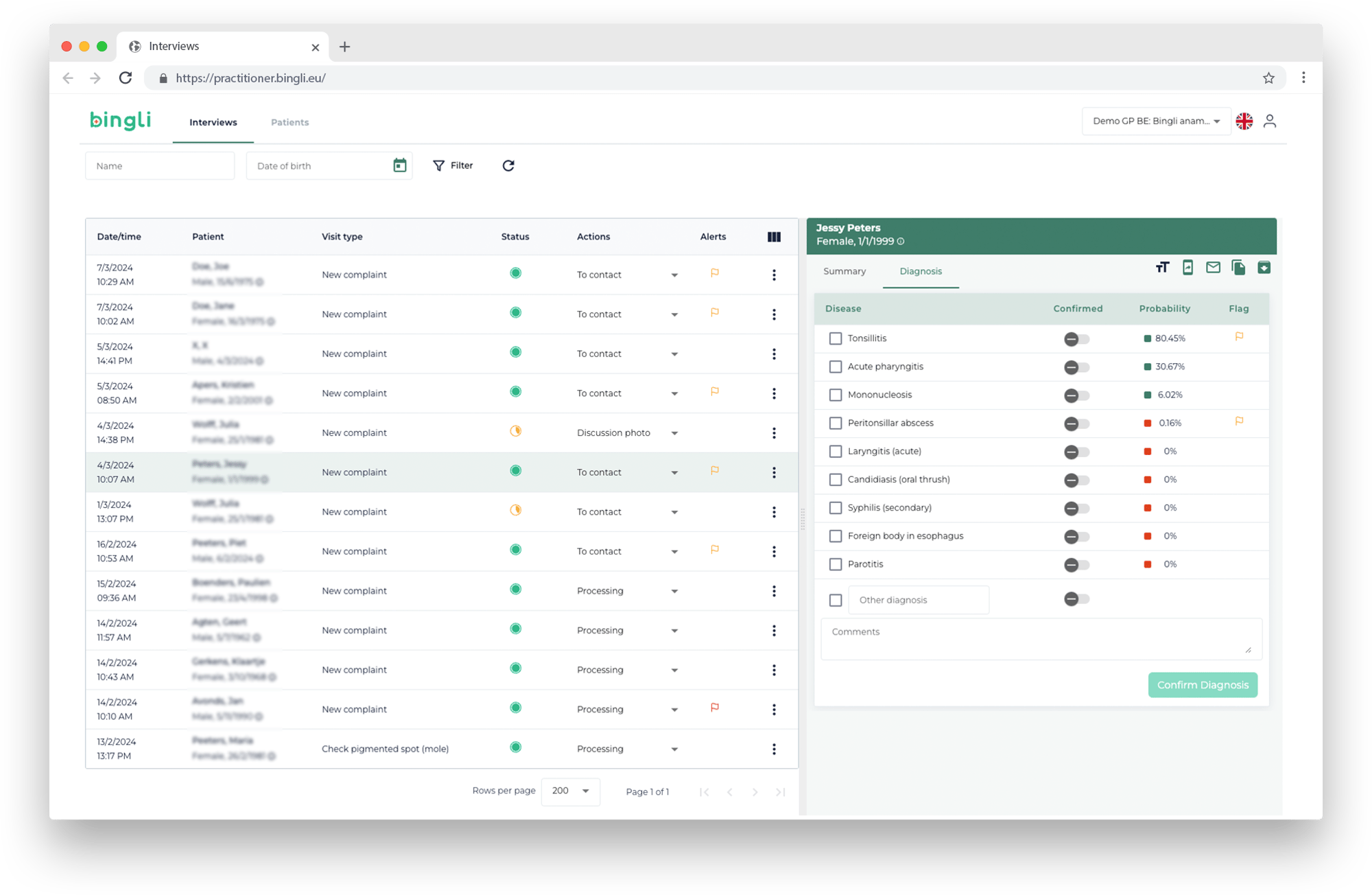Diagnostic landscape
- Diagnostic landscape: A diagnostic landscape is provided for feedback by the HCP, to improve the Bingli AI model.
- The structured anamnesis can help healthcare professionals to make informed decisions when combined with their own clinical assessment of the patient.
- Based on the patient’s answers, Bingli can offer suggestion for tests, treatment and/or referral to the correct caregiver.


Bingli helps doctors with a structured anamnesis and diagnostic landscape
Highly accurate
Bingli proposes a highly accurate diagnostic landscape to the doctor for feedback.
Diagnostic landscape
Clinical, organizational, or administrative actions, such as care navigation, care pathways, screening, ... can be included to support HCPs.
Bingli is an easy-to-use solution
No difficult installation or download, just plug & play.Diagnostic landscape feedback loop

A structured anamnesis is presented to the doctor to support them in their decision- making when combined with their own clinical assessment of the patient. Doctors can give feedback on the proposed diagnostic landscape. This feedback is used to improve our algorithms via machine learning.
More specifically, the doctor’s feedback can be used to, based on real-world evidence, improve several parameters used in the AI algorithm, such as waiting room incidence of diseases (in GP or specialist setting), the likelihood ratio’s of the different arguments of a disease.
This feedback loop with real-world evidence will allow Bingli to continuously improve accuracy of its algorithms, something that is impossible in systems without feedback loop (rule-based algorithms, symptom checkers,…)